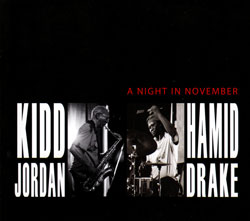
An inventive, exuberant and absolutely amazing duo record from free jazz legends Edward "Kidd" Jordan and Hamid Drake recording live at New Orleans' renowned Piety Street Recording.
Save $0.70
Out of Stock
Quantity in Basket: None
Log In to use our Wish List
Shipping Weight: 3.00 units
Sample The Album:
Kidd Jordan-alto saxophone, tenor saxophone
Hamid Drake-drums
Click an artist name above to see in-stock items for that artist.
UPC: 884501968928
Label: Valid Records
Catalog ID: VR-1015
Squidco Product Code: 18108
Format: CD
Condition: New
Released: 2013
Country: USA
Packaging: Cardstock gatefold foldover
Recorded on November 201th, 2011 by Mark Bingham at Piety Street Recording, New Orleans, LA.
"A unique duet recording by free jazz legends Edward "Kidd" Jordan and Hamid Drake, captured live in concert at New Orleans' renowned Piety Street Recording."-Valid Records
Artist Biographies
• Show Bio for Kidd Jordan "Edward "Kidd" Jordan (born May 5, 1935) is an American jazz saxophonist and music educator from New Orleans, Louisiana. After completing a music degree at Southern University in Baton Rouge, he relocated to New Orleans. He taught at Southern University at New Orleans from 1974 to 2006. Jordan was born in Crowley, Louisiana, and was raised during the time when rice farming was the predominant economic activity in the area. Jordan has noted that the music in southwestern Louisiana was "strictly Zydeco and Blues from way around, and that's what I came up listening to." Zydeco musician Clifton Chenier hailed from the same area, as did tenor saxophonist Illinois Jacquet (whose music teacher also instructed Jordan). Jordan's first instruments were C-melody and alto saxophones. While in high school, Jordan began performing "stock arrangements for three or four saxophones" with some older musicians, and immersed himself in the music of Charlie Parker. Jordan read transcribed solos in Down Beat magazine but also learned Parker's music by ear. He credits Illinois Jacquet with first giving him the idea of playing free improvisation, but was more profoundly affected by the free jazz of Ornette Coleman (who had previously performed in the area with blues bands). Jordan majored in music education at Southern University, attending the school at the same time as Alvin Batiste (his brother-in-law). He originally planned to become a classical alto saxophonist. He moved to New Orleans in 1955, and began playing frequent R&B gigs with musicians such as Guitar Slim, Ray Charles, Big Maybelle, Big Joe Turner, Chuck Willis (with George Adams on baritone) and Choker Campbell. Jordan has described these gigs as being "satisfying for me, because there was a feeling that you'd get from dealing with that. I've played with some of the great female vocalists, from Gladys Knight to Aretha Franklin, or Big Maybelle, Little Esther, Lena Horne, and there's an aesthetic in dealing with those people that a whole lot of people don't get to. And the aesthetic from the Blues is a part of the thing that I want to have in my playing. I don't care how out it gets." Jordan performs on tenor, baritone, soprano, alto, C-melody and sopranino saxophones, as well as contrabass and bass clarinets. He has indicated a preference for playing "outside" music (for example, free improvisation) on tenor, because he closely associates the alto with his earlier study of classical repertoire, tone, and technique. Jordan has performed and recorded with a wide selection of musicians in styles ranging from R&B to avant-garde jazz, including Ray Charles, Stevie Wonder, R.E.M., William Parker, Alvin Fielder, Archie Shepp, Fred Anderson, Ornette Coleman, Ellis Marsalis, Cannonball Adderley, Ed Blackwell, and Cecil Taylor. In 2008 he was awarded a lifetime recognition honor by the Vision Festival. In his performances and recordings his music is entirely improvised: "Everything you hear on my albums is improvised." he explains. "It's collective improvisation, but there are no tunes. I tried writing down ideas a long time ago but I don't do that anymore.". The French Ministry of Culture recognized Jordan as a Knight (Chevalier) of the Ordre des Arts et des Lettres in 1985. The French government bestowed him with their highest artistic award for his impetus as a visionary educator and performer. Jordan taught Donald Harrison and Branford Marsalis while the two were teenagers, and was an instructor at New Orleans Center for Creative Arts (NOCCA). As an instructor of jazz studies at Southern University at New Orleans, Jordan encouraged his students to pursue new approaches to traditional musical forms. One of Jordan's students was trombonist Charles Joseph, who would go on to co-found the Dirty Dozen Brass Band. Jordan composed "Kidd Jordan's Second Line" for the Dirty Dozen Brass Band prior to their first European appearance in 1982, and has also performed with the band. In 2006, Jordan lost his home and most of his possessions during the aftermath of Hurricane Katrina. A few weeks after the hurricane, he recorded the album Palm of Soul in Brooklyn with William Parker and Hamid Drake. Jordan has since returned to New Orleans. In 2011, the television series Treme featured a track from Palm of Soul, "Last of the Chicken Wings." Jordan later made a brief appearance in Treme." ^ Hide Bio for Kidd Jordan • Show Bio for Hamid Drake "Hamid Drake (born August 3, 1955) is an American jazz drummer and percussionist. He lives in Chicago, IL but spends a great deal of time touring worldwide. By the close of the 1990s, Hamid Drake was widely regarded as one of the best percussionists in jazz and avant improvised music. Incorporating Afro-Cuban, Indian, and African percussion instruments and influence, in addition to using the standard trap set, Drake has collaborated extensively with top free-jazz improvisers. Drake also has performed world music; by the late 70s, he was a member of Foday Musa Suso's Mandingo Griot Society and has played reggae throughout his career. Drake has worked with trumpeter Don Cherry, pianist Herbie Hancock, saxophonists Pharoah Sanders, Fred Anderson, Archie Shepp and David Murray and bassists Reggie Workman and William Parker (in a large number of lineups) He studied drums extensively, including eastern and Caribbean styles. He frequently plays without sticks; using his hands to develop subtle commanding undertones. His tabla playing is notable for his subtlety and flair. Drake's questing nature and his interest in Caribbean percussion led to a deep involvement with reggae." ^ Hide Bio for Hamid Drake
11/20/2024
Have a better biography or biography source? Please Contact Us so that we can update this biography.
11/20/2024
Have a better biography or biography source? Please Contact Us so that we can update this biography.
Track Listing:
1. alto and drums 11:01
2. drums 2:47
3. tenor and drums 23:28
4. tenor - Wade in the Water 3:53
5. tenor and drums 29:02
Improvised Music
Jazz
Duo Recordings
Staff Picks & Recommended Items
Top 40 for 2013
Duo Recordings
Saxophone & Drummer / Percussionist Duos
Search for other titles on the label:
Valid Records.


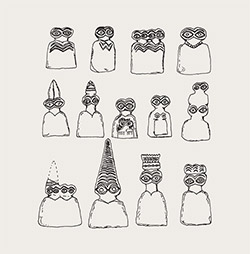
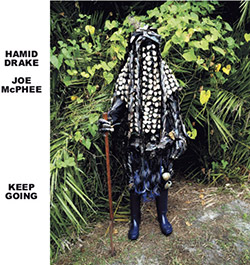

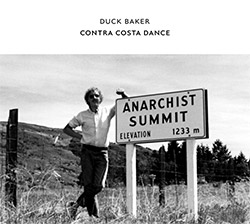

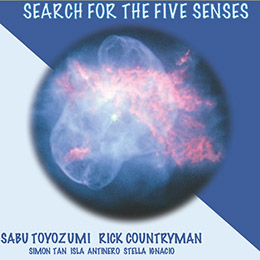
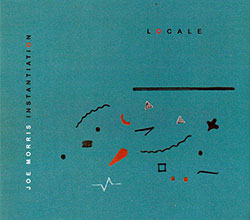

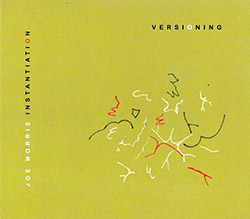
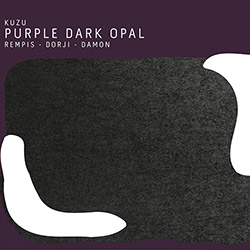
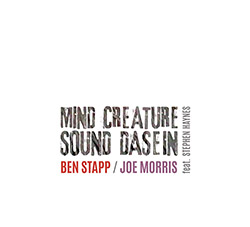


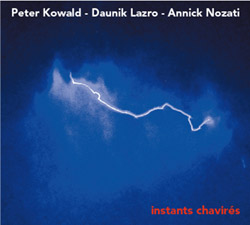

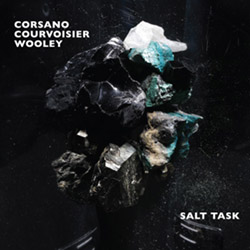

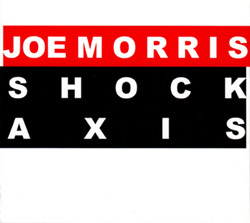
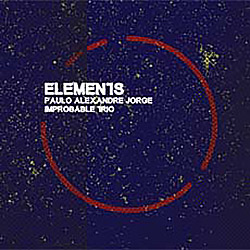
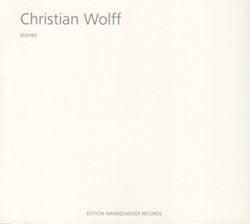





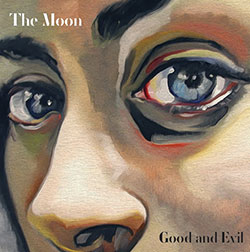


![Guy, Barry / Ken Vandermark: Occasional Poems [2 CDs]](https://www.teuthida.com/productImages/misc4/34849.jpg)
![Novoa / Carter / Mela Trio: Vol.1 [VINYL]](https://www.teuthida.com/productImages/misc4/35236.jpg)


![Elephant9 : Mythical River [VINYL]](https://www.teuthida.com/productImages/misc4/34624.jpg)
![Evans, Peter (Evans / Eldh / Black): Extra [VINYL]](https://www.teuthida.com/productImages/misc4/35279.jpg)

![McPhee, Joe: Straight Up, Without Wings [BOOK]](https://www.teuthida.com/productImages/misc4/35454.jpg)
![Jeck, Philip: rpm [2 CDs]](https://www.teuthida.com/productImages/misc4/35455.jpg)













![Barker / Parker / Irabagon: Bakunawa [VINYL]](https://www.teuthida.com/productImages/misc4/35533.jpg)
![Blaser, Samuel / Marc Ducret / Peter Bruun: Dark Was The Night, Cold Was The Ground [VINYL 10-inch]](https://www.teuthida.com/productImages/misc4/35492.jpg)








![Warren, Kenny (Warren / Hoffman / Ellman): Sweet World [VINYL]](https://www.teuthida.com/productImages/misc4/35451.jpg)




![Blake, Ran / Dave Knife Fabris: Live Amsterdam 2006, First Visit [CD + POSTCARDS]](https://www.teuthida.com/productImages/misc4/35275.jpg)













![DNS: Taking Big Bites Of The Khandas Three Cafes Deep [2 CDs]](https://www.teuthida.com/productImages/misc4/35334.jpg)




![Cleaver, Gerald: The Process [VINYL]](https://www.teuthida.com/productImages/misc4/34966.jpg)




![Alva Noto: HYbr:ID II [VINYL 2 LPs]](https://www.teuthida.com/productImages/misc4/35201.jpg)

![Baron, Derek / Luke Martin: Distinct and Concealed [CASSETTE + DOWNLOAD]](https://www.teuthida.com/productImages/misc4/35079.jpg)

![Lyle, Erica Dawn : Colonial Motels [CASSETTE + DOWNLOAD]](https://www.teuthida.com/productImages/misc4/35080.jpg)









![Sanna, Claudio: Compositori Sardi Contemporanei II [2 CDs]](https://www.teuthida.com/productImages/misc4/35317.jpg)







![Zurria, Manuel: Fame di Vento [3 CDs]](https://www.teuthida.com/productImages/misc4/35167.jpg)

![Granberg, Magnus / Nattens Inbrott / Skogen: Holde Traume, Kehret Wieder! [2 CDs]](https://www.teuthida.com/productImages/misc4/35038.jpg)
![Frey, Jurg: Outermost Melodie [2 CDs]](https://www.teuthida.com/productImages/misc4/35039.jpg)

![Pavone, Jessica: Reverse Bloom [VINYL]](https://www.teuthida.com/productImages/misc4/34895.jpg)




![Modney (Modney / Wooley / Gentile / Roberts / Pluta / Symthe / ...): Ascending Primes [2 CDs]](https://www.teuthida.com/productImages/misc4/34852.jpg)









![Elephant9 with Terje Rypdal: Catching Fire [VINYL 2 LPs]](https://www.teuthida.com/productImages/misc4/35355.jpg)
![Deerlady (Obomsawin, Mali / Magdalena Abrego): Greatest Hits [VINYL]](https://www.teuthida.com/productImages/misc4/34876.jpg)




![Haino, Keiji: Black Blues [2 CDs]](https://www.teuthida.com/productImages/misc4/35109.jpg)



![Surplus 1980: Illusion of Consistency [CD]](https://www.teuthida.com/productImages/misc4/35069.jpg)
![Staiano, Moe: Away Towards the Light [VINYL + DOWNLOAD]](https://www.teuthida.com/productImages/misc4/35037.jpg)



![Caveira (Gomes / Sousa / Abras / Ferrandini): Ficar Vivo [VINYL]](https://www.teuthida.com/productImages/misc4/34643.jpg)
![Gregg, J. J. / David Van Auken: Lunar Prairie [CD w/ DOWNLOAD]](https://www.teuthida.com/productImages/misc4/34611.jpg)

![Coultrain: Mundus [VINYL]](https://www.teuthida.com/productImages/misc4/32439.jpg)
![Mattin: Songbook #6 [VINYL]](https://www.teuthida.com/productImages/misc4/27317.jpg)
![Punkappella: Wake Up [7-inch VINYL]](https://www.teuthida.com/productImages/misc4/17519.jpg)
![Residents, The: WARNING: UNiNC.: Live And Experimental Recordings 1971-1972 [VINYL 2 LPs]](https://www.teuthida.com/productImages/misc4/31521.jpg)
![Coultrain: Phantasmagoria [VINYL]](https://www.teuthida.com/productImages/misc4/30142.jpg)
![Lennon, Sean Ono: Asterisms [VINYL]](https://www.teuthida.com/productImages/misc4/34517.jpg)

![Coley, Byron: Dating Tips for Touring Bands [VINYL]](https://www.teuthida.com/productImages/misc4/17906.jpg)

![Lost Kisses: My Life is Sad & Funny [DVD]](https://www.teuthida.com/productImages/misc4/lostKissesDVD.jpg)